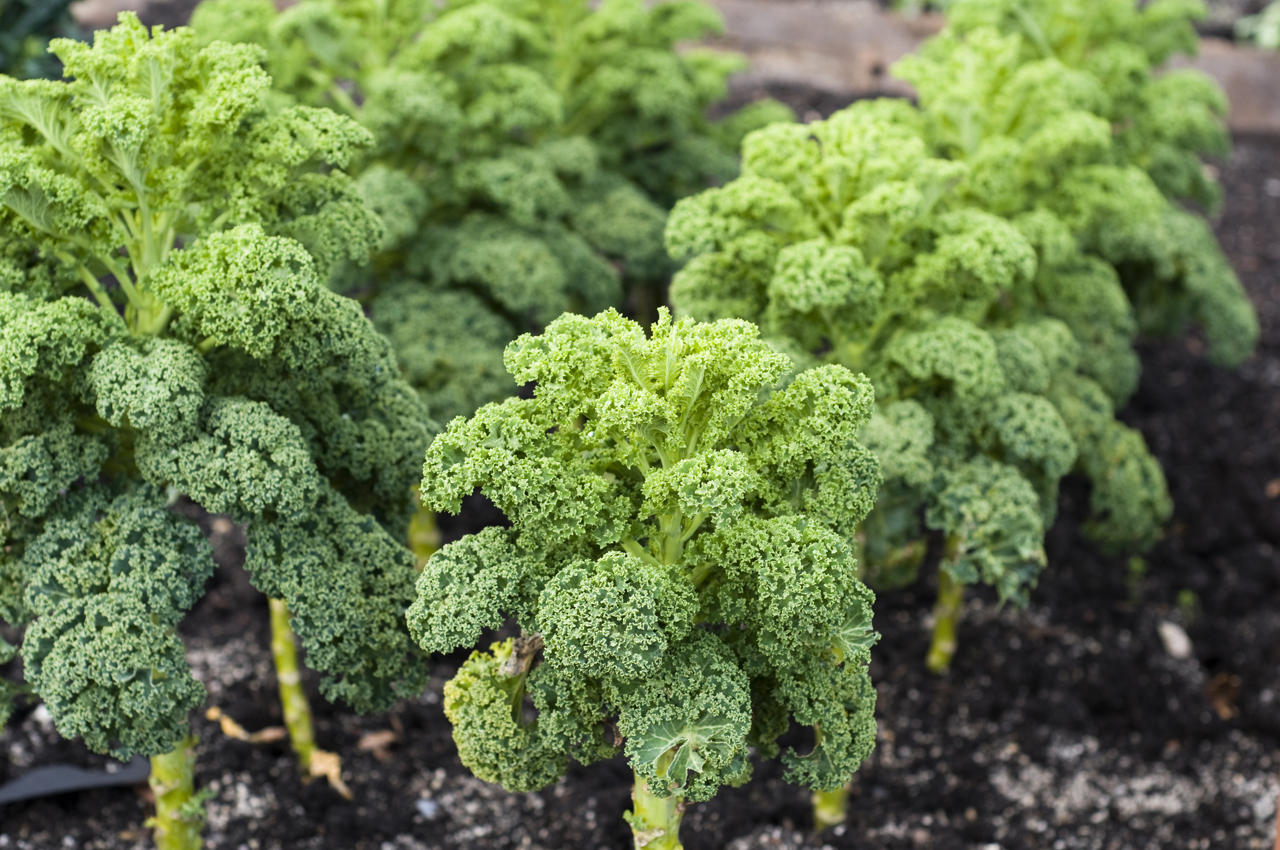
Kale is one such vegetable that offers both, taste as well as health. While its flavor makes a tasty addition to soups and casseroles, the vital nutrients present in it, help in keeping certain serious diseases at bay and protect the body against several infections.
Also known as borecole, kale is a form of cabbage, which may be green or red in color and in which, the inner leaves, at the very center of the cabbage, do not cluster into a cabbage head. It is a close relative of most wild cabbages as well as some well-known cabbages such as broccoli, collard greens, cauliflower, and Brussels sprouts. Besides being a very good source of vitamins and minerals, which makes it a significant vegetarian culinary candidate, kale also has a decorative value. Yes, flowering kales come in a variety of pastel shades and are mostly cultivated for their ornamental leaves of various vibrant hues! Owing to this same reason, flowering kales, which are edible as well, are used to garnish many dishes – these colorful and curly leaves add color to any platter!
Check out the following table on the nutritional value of this colorful vegetable to get a load on its health benefits.
| Kale Nutrient | Content in 1 Cup (67 g approx.) |
| Ash | 1.0 g |
| Betaine | 0.1 mg |
| Calcium | 90.5 mg |
| Carbohydrates | 6.7 g |
| Copper | 0.2 mg |
| Fats | 0.5 g |
| Iron | 1.1 mg |
| Zinc | 0.3 mg |
| Magnesium | 22.8 mg |
| Sodium | 28.8 mg |
| Manganese | 0.5 mg |
| Selenium | 0.6 mcg |
| Phosphorus | 37.5 mg |
| Potassium | 299 mg |
| Proteins | 2.2 g |
| Vitamin A | 10302 IU |
| Thiamine | 0.1 mg |
| Riboflavin | 0.1 mg |
| Niacin | 0.7 mg |
| Vitamin B6 | 0.2 mg |
| Vitamin C | 80.4 mg |
| Vitamin E | 321.6 mg |
| Vitamin K | 547 mcg |
| Folic Acid | 19.4 mcg |
| Vitamin B5 | 0.1 mg |
| Water | 56.6 g |
Health Benefits
Judging by the above-mentioned nutrition information, it must have registered to you by now, what a storehouse of health benefits this cabbage must be. True to this assumption, kale is indeed a treasure-house of health and nutrition. All those vitamins make kale an excellent storehouse of antioxidants and a reservoir of energy and vitality. Proteins, calcium, and other minerals promise to strengthen the biological building blocks of muscles, bones, teeth, and nerves. Iron takes care of mental concentration and red blood cell formation, while potassium keeps a check on heart health and blood pressure. Vitamins A and C ensure accelerated cell repair leading to good eyesight, glowing skin, and healthy mucous membrane. Vitamin K acts as an auxiliary to calcium in strengthening the teeth and bones, besides keeping the possibility of neuronal damage at an arm’s length.
Therefore, it can be said that, kale is an excellent reservoir of nutrients, and it fortifies the body against osteoporosis, anemia, cardiovascular diseases, prostate cancer, lung cancer, and colon cancer. Being extremely low in fats and high in antioxidants, this cabbage is excellent at keeping cholesterol in check. Therefore, it would be wise to include this beneficial vegetable, a part of your daily diet.

